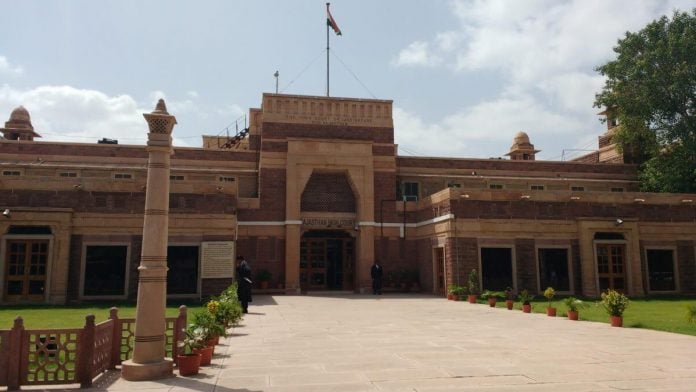The Rajasthan High Court has observed that when the question of life and liberty comes, the Court would prefer to err on safer side.
A single bench of Justice Sameer Jain allowed a petition seeking police protection at their residence and place of work. According to the petitioners, they got married on 22.03.2022. However, this marriage was not approved by their relatives and respondents and fearing them, they had filed the said petition.
The Court held that the State has a duty to protect the life and liberty of the citizens. The petitioners as adult citizens have a right to choose their partners.
It is well settled legal position as expounded by the Supreme Court of India in Lata Singh Vs. State of UP [AIR2006 SC 2522], S. Khushboo Vs. Kanniammal [(2010) 5SCC 600], Indra Sarma Vs. VKV Sarma [(2013) 15 SCC 755] and Shafin Jahan Vs. Asokan KM [(2018) 16 SCC 368] that the society cannot determine how individuals live their lives, especially when they are major, irrespective of the fact that the relation between two major individuals may be termed as unsocial, referred the High Court.
Thus it is observed by the High Court that the life and personal liberty of the individuals has to be protected except according to procedure established by law, as mandated by Article 21 of the Constitution of India. Further, as per Section 29 of the Rajasthan Police Act, 2007 every police officer is duty bound to protect the life and liberty of the citizens.
Under the circumstances, the petitioners would approach the Commissioner of Police/Superintendent of Police with a copy of this order. It would be the duty of the said authority to ensure the safety and security of the petitioners, for which he may take such suitable measures as found necessary in accordance with law, the Bench directed.
While disposing the petition, it is further observed by the High Court that if the petitioner’s income is more than taxable income under the Income Tax Act, 1961, the Superintendent of Police after considering the financial aspect may charge appropriate financial charges from them as specified in law if financial hardship is not the case.


